#Faith Teaching
Explore tagged Tumblr posts
Text
Prayer
I think the most important thing we can do in this life is spend every moment in this life, with God. A continuous comversation with God is essential to life. Prayer is essentail to life. And even when you rise from your knees or your bed or your chair after prayer, continue to pray to God by keeping the conversation between you two going. Speak to Him. Speak to Him like He is your bestfriend, because He is. The conversation (the prayer) never ends. And when you learn to truly pray without ceasing in this manner, you will unleash the fullness of God within yourself and your life and yourself will be FULL. The time you spend with God will never end and it will be so extraordinary to the point of which people will not even realize. And they will not realize that they dont have to physically see you praying to attest to the fact that you are constantly in prayer with God, because every milisecond you are awake has been spent in prayer and in continual conversation with Him, and they didnt have to see the PHYSICAL supplication for this to be true because you have submitted in SPIRIT to God, to the point of which the spiritual conversations and communication you have with Him literally NEVER ENDS… and many will not possess the spiritual maturity to know how close you are to The Most High, because they like to see with their physical eyes, instead of their spiritual eyes. They cannot fathom things unless they see them… where we are taught that faith is not about physical sight or perception. Its more important to submit in spirit than to show that submission with a physical representation of supplication.
This is how and why my conversations with God never end. My prayers never end. My prayers are countless throughout the day. I cannot tell you how many times I prayed today, because my prayers go beyond my “amens”. My prayers supersede limitations and numeric values. Because my prayers not only happen when I am alone, in supplication, on my knees, in my journals, during my prayer times, or in mass prayer, but they ALSO happen while I am walking to class, while I am driving, while I am eating, while I am studying, while I am working, in the middle of conversations, and literally throughout my entire day and all the while I am existing, the entire time…inside and outside of myself (meaning aloud and internally)… because I am supplicated to God in my spirit, not just in my body and what the world can see me doing. This is what it means to truly live for Him and to pray to Him without ceasing.
Continue on your faith journey and the love of God. Amen.
- The Modest Blog | Paris Dior
#parisdior#modesty#fashion#modest#black femininity#love#modestfashion#modestclothing#melanin#90s fashion#faith#wisdom#spiritual knowledge#knowledge#knowledgeincrease#faith teaching#faithjourney#Israelite#modest style#faith blogger#modest blogger#fashion blogger#godly teachings#godly conversation#godly#godly woman#talk to god#prayer#prayer habits#pray
21 notes
·
View notes
Text
Sacred Beauty: Why God's Standards Matter More Than the World's
Beauty in Holiness I would like to reflect on your beauty as women of faith (1 Corinthians 11:15). Your hair is your covering. It’s more than just an external facade; it’s a reflection of the glory of God shining through you. Show your beauty in all its forms. Seek holiness in how you present yourself to the world. You don’t need to conform to the world’s standards to be cherished. God honors…
#Christian Living#Christian Relationships#Christian Testimony#Christian Worship#Divine Beauty#Divine Love#Faith Journey#Faith Teaching#Faith Walk#Godly Love#Gospel Music#Group Prayer#Holy Living#Matthew 18#Midnight Prayer#Night Prayer#prayer life#prayer ministry#Prayer Requests#Prayer Session#Prayer Warriors#relationship artist#Religious Unity#Shirah Chante#spiritual freedom#Spiritual Growth#spiritual guidance#spiritual healing#spiritual journey#Spiritual Unity
0 notes
Text
faith unshaken.
"A Palestinian family in Tal al-Sultan camp, west of Rafah, decorates its tent in preparation for the month of Ramadan in order to preserve Ramadan customs and bring joy and happiness to the children to alleviate the effects of war." from Belal Khaled, 02/Mar/2024:










#ramadan#muslim#islam#faith#palestine#free palestine#gaza#free gaza#from the river to the sea palestine will be free#i stand with palestine#rafah#save rafah#palestinian resistance#we teach life sir#palestine will be free#palestine will never die#palestinian muslims
22K notes
·
View notes
Text
"Fairytales don't tell children that dragons exist.
Children already know that dragons exist.
Fairytales tell children that dragons can be killed."
G.K. Chesterton.
#quote of the day#quote of today#g. k. chesterton#fairytales#childhood#children#teach your children#dragons#here be dragons#hic sunt dracones#here are lions#hic sunt leones#experience#knowledge#courage#empowerment#faith#have faith#inner strength#power#strength#think about it
7K notes
·
View notes
Text
De-Aged Danny, gesturing to a dazed Bruce inside Wayne Manor: And this is Bruce! Otherwise known as the Himbo! Reporters: Hmm, yes, interesting... Bruce: What the- Danny: I'm not sure what that word means. I heard it from Dick, but no one will give me my answer, not even Jason, who is easily bribed. Bruce: Why are there reporters in my house!? Danny, innocent and childlike: They asked to come inside, Bruce! They seemed like really nice people, so I thought it'd be polite to give them a tour. Bruce, filled with infinite patience: I really wish you had asked me before you did that, chum. Danny: But why? We don't have anything to hide... do we, Bruce?
Or, in order to rise to the Ghost Throne, Danny has to complete a series of trials to prove he is capable of ruling (or any other reason, Danny just needs to do trials to prove himself).
The last trial, issued by Clockwork, is thus: discover the Wayne Family secret in two weeks without the use of any of his powers.
He has one shapeshift to pick a form that could endere him to the Waynes, but only one before he starts and he has to get close to the family by his own wits. Danny, after studying the family and reading of one sentence summary of each Wayne, picks the body of a six-year-old little boy that looked like a child Jason Todd.
Bruce: That child is up to something. Dick, third favorite: I don't know, Bruce; he acts like a normal kid. Jason, #1 favorite: I doubt the old man's ever met a normal kid. Tim, least favorite: Bruce is right, but can you please not talk like the villains from Chicken Run.
#dc x dp#dp x dc#dpxdc#dcxdp#de-aged danny#danny thinks the trials happen in simulations in the GZ#he has no idea they were alternate realities each time#c: danny fenton#c: bruce wayne#c: dick grayson#c: jason todd#jason is favorite since danny is convinced that his “death” has to do with the Secret#and also for being completely 100% ok with throwing down with a child#tim is least favorite because he's too suspicious#damian is second favorite for also being 100% ok with throwing down with a child#dick is tearfully trying to gentle parent jason into being a good big brother#all “you're going to be such a good big brother let me teach you.”#which jason doesn't NEED but is kinda flattered that dick has so much faith in him to be a big bro
3K notes
·
View notes
Text
Alright, everyone, say it with me: The Catholic Church Has No Power Or Authority To Change Her Doctrines Or The Moral Law
#it quite literally IS NOT UP TO US#the reason we're “entrenched in the past” or whatever bs you want to call it is because We Are Not In Charge Of That#i am repeatedly banging my head into a table#also. WHY are you so obsessed with us changing our morality?#WHY do you care?? and why US specifically??? why not the orthodox???? (no shade to the orthodox those are my homies)#if you don't like it. you do not have to be catholic. it is that simple. literally just go somewhere else#i apologize if that comes off harsh because we WOULD love to have you!#but why would you want to belong to a faith that you don't even agree with???#and also if i see any more anything about the Church and gender dysphoria i will actually yell. and punch a wall#because i am still HERE as the Margin you all know and love-- fully and authentically myself; and LOVING myself--#because of her teaching on gender and sexuality#but that's a conversation for another day#anyway. rant over#margin rambles#catholicism
265 notes
·
View notes
Note
Hello. Sorry if this a stupid question u can ignore if u want.
How can someone get better at media analysis? Besides obviously reading a lot.
Im asking this bc im in a point where im aware of my own lack of tools to analyze stories, but i don't know where to get them or how to get better in general. How did you learn to analyze media? There's any specific book, essay, author, etc that you recommend? Somewhere to start?
I'm asking you because you are genuinely the person who has the best takes on this site. Thank you for you work!
it sounds like a cop-out answer but it's always felt like a skill I acquired mostly thru reading a ton, and by paying a lot of attention in high school literature classes. because of that I can't promise that I'm necessarily equipped to be a good teacher or that i know good resources. HOWEVER! let me run some potential advice to you based on the shit i get a lot of mileage out of
first off, a lot of literary analysis is about pattern recognition! not just pattern recognition in-text, but out-of-text as well. how does this work relate to its genre? real-world history? does it have parallels between real-life situations? that kind of thing.
which is a big concept to just describe off the bat, so let me break it down further!
in literature, there is the concept of something called literary devices - they are some of the basic building blocks in how a story is delivered mechanically and via subtext. have you ever heard of a motif? that is a literary device. it's a pattern established in the text in order to further the storytelling! and here is a list of a ton of common literary devices - I'd recommend reading the article. it breaks down a lot of commonly used ones in prose and poetry and explains their usage.
personally, I don't find all the literary devices I've learned about in school to be the most useful to my analytical hobbies online. motifs, themes, and metaphors are useful and dissecting them can bring a lot to the table, but a lot of other devices are mostly like fun bonus trivia for me to notice when reading. however, memorizing those terms and trying to notice them in the things you read does have a distinct benefit - it encourages you to start noticing patterns, and to start thinking of the mechanical way a story is built. sure, thinking about how the prose is constructed might not help you understand the story much more, but it does make you start thinking about how things like prose contribute to the greater feeling of a piece, or how the formatting of a piece contributes to its overall narrative. you'll start developing this habit of picking out little things about a text, which is useful.
other forms of in-text pattern recognition can be about things like characterization! how does a character react to a certain situation? is it consistent with how they usually behave? what might that tell you about how they think? do they have tells that show when they're not being trustworthy? does their viewpoint always match what is happening on screen? what ideas do they have about how the world works? how are they influenced by other people in their lives? by social contexts that might exist? by situations that have affected them? (on that note, how do situations affect other situations?)
another one is just straight-up noticing themes in a work. is there a certain idea that keeps getting brought up? what is the work trying to say about that idea? if it's being brought up often, it's probably worth paying attention to!
that goes for any pattern, actually. if you notice something, it's worth thinking about why it might be there. try considering things like potential subtext, or what a technique might be trying to convey to a reader. even if you can't explain why every element of a text is there, you'll often gain something by trying to think about why something exists in a story.
^ sometimes the answer to that question is not always "because it's intentional" or even "because it was a good choice for the storytelling." authors frequently make choices that suck shit (I am a known complainer about choices that suck shit.) that's also worth thinking about. english classes won't encourage this line of thinking, because they're trying to get you to approach texts with intentional thought instead of writing them off. I appreciate that goal, genuinely, but I do think it hampers people's enthusiasm for analysis if they're not also being encouraged to analyze why they think something doesn't work well in a story. sometimes something sucks and it makes new students mad if they're not allowed to talk about it sucking! I'll get into that later - knowing how and why something doesn't work is also a valuable skill. being an informed and analytical hater will get you far in life.
so that's in-work literary analysis. id also recommend annotating your pages/pdfs or keeping a notebook if you want to close-read a work. keeping track of your thoughts while reading even if they're not "clever" or whatever encourages you to pay attention to a text and to draw patterns. it's very useful!
now, for out-of-work literary analysis! it's worth synthesizing something within its context. what social settings did this work come from? was it commenting on something in real life? is it responding to some aspects of history or current events? how does it relate to its genre? does it deviate from genre trends, commentate on them, or overall conform to its genre? where did the literary techniques it's using come from - does it have any big stylistic influences? is it referencing any other texts?
and if you don't know the answer to a bunch of these questions and want to know, RESEARCH IS YOUR FRIEND! look up historical events and social movements if you're reading a work from a place or time you're not familiar with. if you don't know much about a genre, look into what are considered common genre elements! see if you can find anyone talking about artistic movements, or read the texts that a work might be referencing! all of these things will give you a far more holistic view of a work.
as for your own personal reaction to & understanding of a work... so I've given the advice before that it's good to think about your own personal reactions to a story, and what you enjoy or dislike about it. while this is true that a lot of this is a baseline jumping-off point on how I personally conduct analysis, it's incomplete advice. you should not just be thinking about what you enjoy or dislike - you should also be thinking about why it works or doesn't work for you. if you've gotten a better grasp on story mechanics by practicing the types of pattern recognition i recognized above, you can start digging into how those storytelling techniques have affected you. did you enjoy this part of a story? what made it work well? what techniques built tension, or delivered well on conflict? what about if you thought it sucked? what aspects of storytelling might have failed?
sometimes the answer to this is highly subjective and personal. I'm slightly romance-averse because I am aromantic, so a lot of romance plots will simply bore me or actively annoy me. I try not to let that personal taste factor too much into serious critiques, though of course I will talk about why I find something boring and lament it wasn't done better lol. we're only human. just be aware of those personal taste quirks and factor them into analysis because it will help you be a bit more objective lol
but if it's not fully influenced by personal taste, you should get in the habit of building little theses about why a story affected you in a certain way. for example, "I felt bored and tired at this point in a plot, which may be due to poor pacing & handling of conflict." or "I felt excited at this point in the plot, because established tensions continued to get more complex and captured my interest." or "I liked this plot point because it iterated on an established theme in a way that brought interesting angles to how the story handled the theme." again, it's just a good way to think about how and why storytelling functions.
uh let's see what else. analysis is a collaborative activity! you can learn a lot from seeing how other people analyze! if you enjoy something a lot, try looking into scholarly articles on it, or youtube videos, or essays online! develop opinions also about how THOSE articles and essays etc conduct analysis, and why you might think those analyses are correct or incorrect! sometimes analyses suck shit and developing a counterargument will help you think harder about the topic in question! think about audience reactions and how those are created by the text! talk to friends! send asks to meta blogs you really like maybe sometimes
find angles of analysis that interest and excite you! if you're interested in feminist lenses on a work, or racial lenses, or philosophical lenses, look into how people conduct those sort of analyses on other works. (eg. search feminist analysis of hamlet, or something similar so you can learn how that style of analysis generally functions) and then try applying those lenses to the story you're looking at. a lot of analysts have a toolkit of lenses they tend to cycle through when approaching a new text - it might not be a bad idea to acquire a few favored lenses of your own.
also, most of my advice is literary advice, since you can broadly apply many skills you learn in literary analysis to any other form of storytelling, but if you're looking at another medium, like a game or cartoon, maybe look up some stuff about things like ludonarrative storytelling or visual storytelling! familiarizing yourself with the specific techniques common to a certain medium will only help you get better at understanding what you're seeing.
above all else, approach everything with intellectual curiosity and sincerity. even if you're sincerely curious about why something sucks, letting yourself gain information and potentially learning something new or being humbled in the process will help you grow. it's okay to not have all the answers, or to just be flat-out wrong sometimes. continuing to practice is a valuable intellectual pursuit even if it can mean feeling a tad stupid sometimes. don't be scared to ask questions. get comfortable sometimes with the fact that the answer you'll arrive at after a lot of thought and effort will be "I don't fully know." sometimes you don't know and that can be valuable in its own right!
thank you for the ask, and I hope you find this helpful!
#narrates#thanks for the kind ask! i feel a little humbled by your faith in me aha#this may be a bit scattershot. its 2 am. might update later with more thoughts idk#nyway i feel like a lot of lit classes even in college don't tell you why they're teaching you things that might feel superfluous#hopefully this lays out why certain seemingly superfluous elements of literary education can be valuable#the thing esp about giving theses and having a supporting argument... its not just because teachers need to see an essay or whatever#the point is to make you think about a text and then follow thru by performing analysis#and supporting that analysis w/ evidence from the text#u don't have to write essays but developing that mindset IS helpful. support ur conclusions yknow?#anyway thanks again hope it's illuminating
222 notes
·
View notes
Text
2 Timothy 2:22-26
"Flee the evil desires of youth and pursue righteousness, faith, love and peace, along with those who call on the Lord out of a pure heart. Don’t have anything to do with foolish and stupid arguments, because you know they produce quarrels. And the Lord’s servant must not be quarrelsome but must be kind to everyone, able to teach, not resentful. Opponents must be gently instructed, in the hope that God will grant them repentance leading them to a knowledge of the truth, and that they will come to their senses and escape from the trap of the devil, who has taken them captive to do his will."
#god#jesus christ#holy spirit#bible verse#holy bible#gospel#bible scripture#christianity#bible study#bible#spread the message#spread the word#spread the love#god loves you#jesus loves you#love#love jesus#faith in jesus#jesus#christian faith#prayer#spread the gospel#teaching#get motivated#bible quote#worshipping#faith in god#faith#forgiveness
167 notes
·
View notes
Text
movies where neglectful parents learn to appreciate their kids ❌
movies where neglectful parents die ✔️
#💭... on the clouds#“kids.. yeah your parents are awful but they do love you!” (???)#dont teach kids conform with their abusers and teach thats not normal and they deserve more#faith in jesus#the willoughbys#girlblogging#girl blogger#girlblogger#coquette#youthlib#youth liberation#child rights#child abuse#childhood#teenhood#adult supremacy#adultism#ageism#childrens rights
308 notes
·
View notes
Text

shh, don't cry. when they're not in the inn, ed and stede are spending their days lounging about on the sand, luxuriating in the sun, and getting lost in each other's eyes just like this, ok?
[picture source]
#Gentlebeard#Blackbonnet#OFMD#OFMD Season 2#Edward Teach#Stede Bonnet#Taking a leap of faith in sharing some of these since I don't know HOW on earth we got access to all of these shdlkjsdhlks#BUT SO MANY OF US ARE SAD AND THINGS ARE SO TENSE SO SDJKLSJDS WOE LOVELY PICTURES UPON YE!!!
244 notes
·
View notes
Text
I’m Learning
I’m learning that people aren’t just jealous of looks, money, power, or attention. People are much more jealous of the things you cannot see with the naked eye.
You can see the evidence of someone having money, being beautiful, receiving attention, and having power and influence.
But what you cannot see is what they are most jealous of.
I’m learning that many people are jealous of love, kindness, wisdom, intelligence, faith, equipment, mannerism, decorum, respect, and properness.
This is why you see men jealous of women nowadays, and why you see close friends or brothers/sisters in faith jealous of their own people.
They don’t.. not like you, for what is evident. They don’t like you for what they learned about you AFTER seeing what is evident. Because what is not evident is even more valuable.
Most people out here, they don’t like you because you know too much, you’re too intelligent, you’re too righteous, you’re too talented, you’re too equipped, you’re too loyal, you’re too genuinely loving, you’re too godly, you’re too well spoken, you’re too wise, you’re too strong, you’re too ambitious, you’re too innocent, you’re too proper, you’re too anointed, you’re too blessed…
You’re too much of everything they are not, or everything that they think they are not… for them to be comfortable around you.
Most people are so self loathing, that they cannot be around someone who loves themselves and others like you. They keep trying to find a flaw in you worthy of disgrace and they cannot… and it bothers them. They will pretend you are less, because you are actually and precisely abundant.
The next time you’re hated on and treated less than yourself, or falsely judged by someone only trying to place flaws on you, that you do not have, to justify their nasty disposition towards you or to justify their horrible treatment of you…
Remind yourself: they only hate you, because you’re beautiful.
Tell them: “don’t hate me, because I’m everything you’re not”
- The Modest Blog | Paris Dior
#parisdior#modesty#fashion#modest#black femininity#love#modestfashion#modestclothing#melanin#90s fashion#black artist#wisdom#loveyourself#self love#protect your peace#protect your energy#protect yourself#keep it real#keep it 100#stay true#spread love#god is light#godly teachings#faith teaching#jealousy#ugly traits#petty people#anointed#targeted#sick people
15 notes
·
View notes
Text

Amen!!! ✨✨✨
#bible study#christian bible#king james bible#biblevisuals#christian quotes devotional dailyverse faith biblestudy sundaydevotional dailydevotional sundaymotivation prayer bibleversoftheday biblevers#bible quote#bible#bible in a year#holy bible#bibleversoftheday#bible verse#bible teaching#bible reading#biblical#bibledaily#motivateyourself#motivacao#motivatedmindset#get motivated#motivação#motivational quotes#motivatingwords#motivating quotes#motivación#motivation#motivating myself#inspirational quotes#love quotes#beautiful quote#quoteoftheday
1K notes
·
View notes
Text
Far Cry 5 needs an update with an I Can Fix Them ending
#and we live happily ever after in the bunkers#free tattoos and drugs and a lot of pet dogs i guess?#someone gotta teach these mfs to make a potato salad#far cry 5#sharky boshaw#hurk drubman jr#jacob seed#john seed#joseph seed#faith seed
81 notes
·
View notes
Text
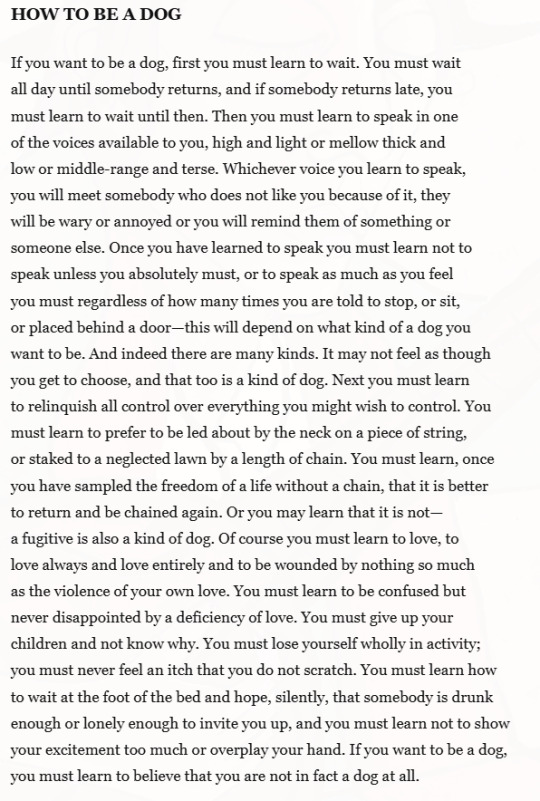
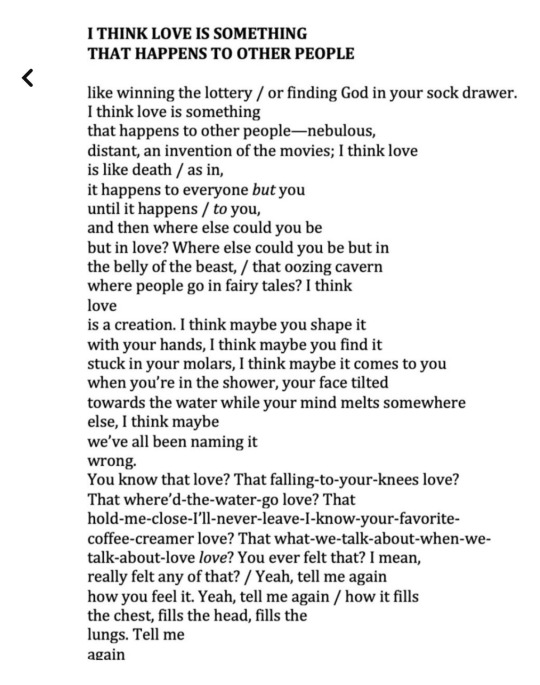
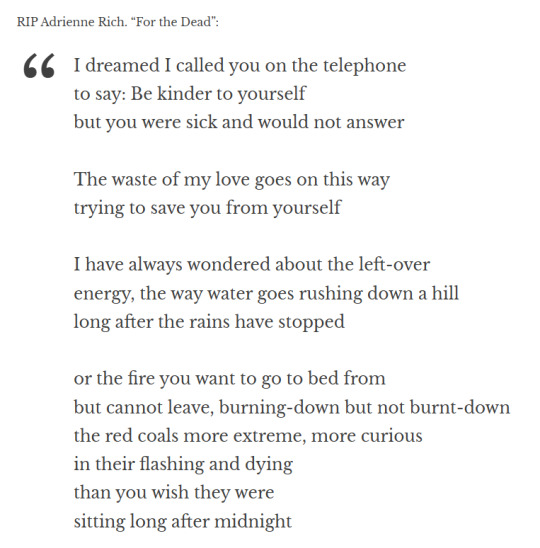
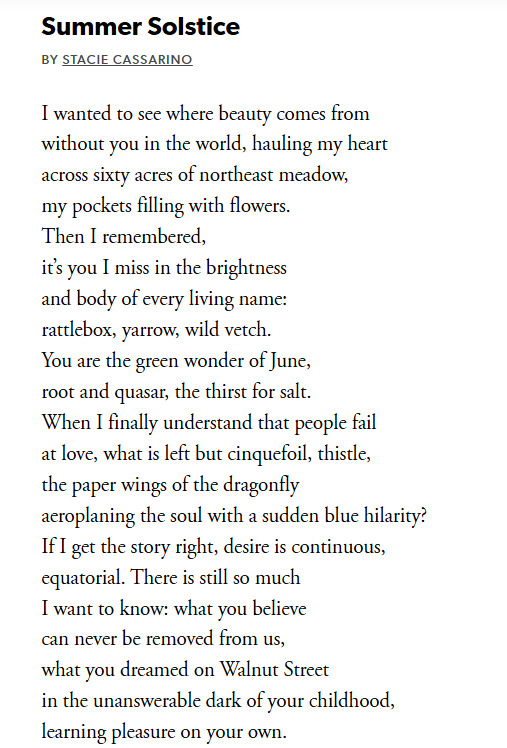
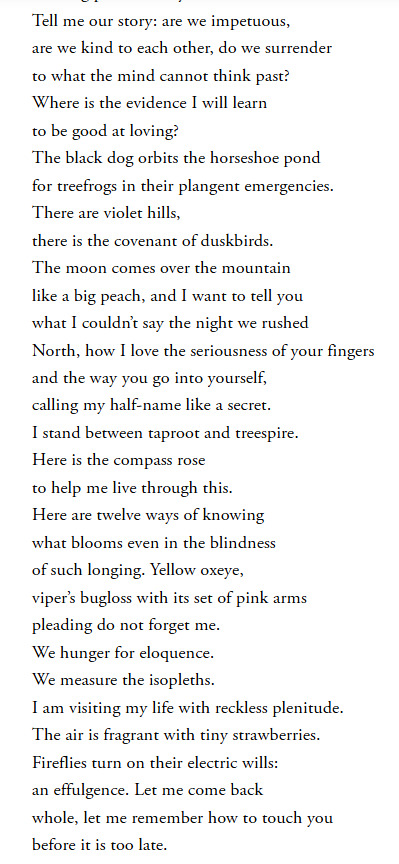
recommendations for @mail-me-a-snail & honestly everyone who follows me bc y'all know i give out recommendations like candy. i think especially you may like I think love is something that happens to other people and HOW TO BE A DOG (the latter is similar to Your Faithful Servant).
#zoneposting#poetry#some recommendations#my followers know ive never been normal or calm about poetry ever#oh god i forgot to update you guys that i recently won a 2k grant to establish a 3 year program to teach poetry to kids thru my poetry org#i wanna post some of the poems im gonna use esp since lots are in spanish/by latino authors#reminder to do that#n e ways i have so much more but im showing restraint (rattles the bars of my cage)#how to be a dog is rly similar to your faithful servant in structure and theme and actually i fear im composing a small essay abt it.#ALSO it is absolutely okay if none of these vibe with you--poetry is incredibly subjective & i passed over some of my favs to rec these#sometimes what rewrites one person is just words to another and that is more than alright#but i wanted to try to return the favor bc im adding your faithful servant to my poetry doc bc it honestly hit me spectacularly hard#& im very glad you decided to post it
94 notes
·
View notes
Text

Stede was playing a role, but it was very much to his advantage that it was one where he was supposed to be enamoured with Ed, because Stede didn’t think he could keep that expression off his face if he tried. And honestly, at this point, he wasn’t even trying.
Flight of Faith chapter 12
#ofmd#our flag means death#gentlebeard#edward teach#stede bonnet#ofmd fanart#ballet au#flight of faith#swan lake#matthew bourne
74 notes
·
View notes
Text



“The example of those who spend their wealth in the cause of Allah is that of a grain that sprouts into seven ears, each bearing one hundred grains. And Allah multiplies ˹the reward even more˺ to whoever He wills. For Allah is All-Bountiful, All-Knowing.”
- [Quran 2:261]
#islam#zakat#quranquotes#quran#quran kareem#holy quran#quran ayah#islamic posts#islam quote#islam is peace#islamic#islamdaily#islamislove#islamic quotes#islam daily#islam help#islamic reminders#islamic teachings#islamic advice#islamic faith#islamic knowledge#islamic charity#deenislam#deenoverdunya#progressive islam#progressive muslims#pakistani muslims#pakistani muslimah#pakistani muslim#quraan
57 notes
·
View notes